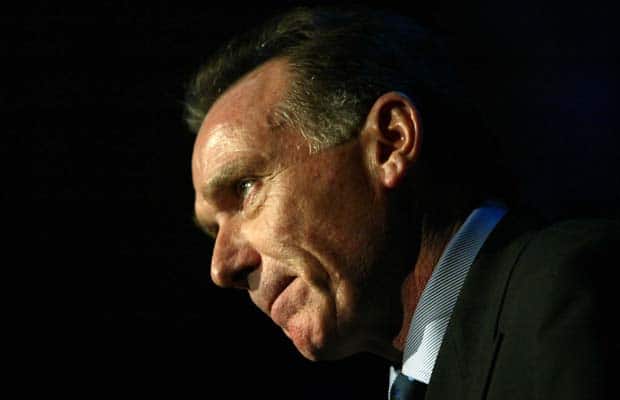Canadian Environment Minister Peter Kent is off to a great start convincing Canadians that he is concerned about the environment. After just than two days in office, he has already tried to persuade Canadians that Alberta’s filthy tar sands oil are “ethical oil” and unworthy of the negative reputation that countless citizens, politicians, and environmental organizations have given them. Today, he’s promising that the Harper government will not impose any greenhouse gas reductions on the oil patch that will discourage investment.
Curbing regulation in favour of profits doesn’t really sound like the work of the Minister of the Environment. This suggests, rather troublingly, that the profits of the oil and gas sector, and in particular Alberta’s tar sands, are more important to the Harper government than their environmental impact. Let’s get something clear: is Kent the Minister of Environment, or the Minister of Environmental Destruction? And who is he working for? Corporate interests, or Canadians?
While Canada’s environmental commitments have tended to mirror the United States, Canada is reaching new lows by dragging its heels further into the dust (or, bitumen as may be the case) while the Obama administration moves ahead with new emissions rules for power plants and refineries (despite Republican opposition no less).
Back on this side of the border, to the delight of oil companies, the Harper government will draw up its own emission standards specifically for petroleum and tar sands facilities. As of yet, there’s no schedule for how those standards will look, but what is already painfully clear is that Kent has already committed to doing what is in the interest of oil companies, and not the environment.
To its credit, the Harper government has committed to making emission reductions for coal-fired power generators by 2015. Of course, the new rules will apply only to plants built after 2015, and to old ones being refurbished. Though these efforts are important, Harper’s plan seems like a lot of greenwash because emissions are already on the decline due to an Ontario government decision to phase out coal-powered electricity. The real problem in Canada remains greenhouse gas emissions from the oil and gas sector, and in particular Alberta’s tar sands. And these emissions are on the rise, and cannot be ignored in the face of profits.
The tired dialogical economic development versus environmental progress debate is a non-starter and is getting really exhausting. At least our fifth Minister of the Environmental Destruction is off to a great start.
On this growing story, read more here.
Photo Credits: Peter J. Thompson
Subscribe to our newsletter
Stay up to date with DeSmog news and alerts






